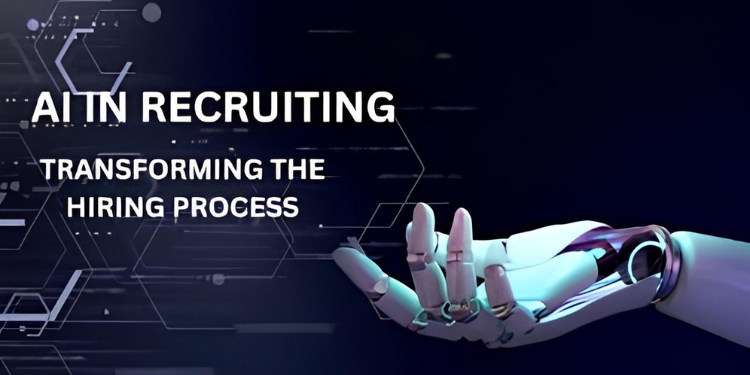
How AI is Transforming the Recruitment Process: The Future of Talent Acquisition
Artificial Intelligence is revolutionizing how companies identify, screen, and hire talent. From automated resume screening to predictive analytics, AI tools are creating more efficient and bias-free recruitment processes. This transformation is not just changing how recruiters work but is fundamentally reshaping the entire talent acquisition landscape.
The Evolution of AI in Recruitment
The journey of AI in recruitment began with simple keyword matching in applicant tracking systems. Today, it has evolved into sophisticated algorithms that can assess candidate fit, predict job performance, and even conduct initial interviews. According to our research, companies implementing AI-powered recruitment tools have seen a 40% reduction in time-to-hire and a 20% improvement in retention rates of new hires. The technology continues to advance rapidly, with new applications emerging regularly.
Resume Screening and Candidate Sourcing
One of the most significant impacts of AI is in the initial stages of recruitment. Traditional resume screening is time-consuming and prone to unconscious bias. AI systems can scan thousands of resumes in seconds, identifying qualified candidates based on skills, experience, and other relevant factors rather than demographic information that might introduce bias. These systems continuously learn from hiring decisions, improving their accuracy over time.
Beyond passive resume screening, AI is revolutionizing candidate sourcing. Advanced algorithms can proactively identify potential candidates by analyzing professional profiles across various platforms, predicting which professionals might be open to new opportunities even before they actively start job hunting. Our clients report finding 35% more qualified candidates using AI sourcing tools compared to traditional methods.
Candidate Assessment and Predictive Analytics
The assessment phase of recruitment has been transformed by AI-powered tools that evaluate candidates' skills, personality traits, and potential job performance. These range from gamified assessments that measure cognitive abilities to video interview platforms that analyze speech patterns, facial expressions, and word choice to gauge candidate characteristics.
Predictive analytics goes a step further by using historical data to forecast how likely a candidate is to succeed in a role. By analyzing patterns from successful employees, these systems can identify similarities in new candidates that correlate with long-term success. Our data shows that organizations using AI-powered predictive analytics have seen a 25% improvement in quality of hire metrics.
Chatbots and Candidate Experience
AI-powered chatbots are revolutionizing candidate communication, providing instant responses to applicant queries 24/7. These conversational AI assistants can schedule interviews, provide updates on application status, share information about the company and role, and even conduct preliminary screenings. The improvement in candidate experience is significant – our surveys show that applicants who interact with well-designed recruitment chatbots report 30% higher satisfaction with the application process.
Removing Bias from Recruitment
Perhaps one of the most promising aspects of AI in recruitment is its potential to reduce bias. Traditional hiring processes are susceptible to various forms of unconscious bias that can lead to less diverse workforces. Well-designed AI systems can be programmed to ignore demographic information and focus solely on qualifications and job-relevant characteristics.
However, it's crucial to acknowledge that AI systems can also perpetuate bias if they're trained on biased historical data. Organizations must implement rigorous testing and monitoring of their AI recruitment tools to ensure they're promoting fairness rather than reinforcing existing patterns of discrimination. Companies using carefully designed and monitored AI recruitment systems have reported a 29% increase in diversity among new hires.
Interview and Assessment Augmentation
AI is enhancing the interview process through tools that can analyze candidate responses for content, sentiment, and behavioral indicators. Some systems can conduct preliminary video interviews, asking standardized questions and analyzing responses for both verbal content and non-verbal cues. These technologies provide interviewers with deeper insights and allow for more objective comparisons between candidates.
Additionally, AI-powered assessment platforms can evaluate technical skills, problem-solving abilities, and even potential cultural fit through customized simulations and challenges. These assessments provide a more complete picture of a candidate's capabilities than traditional interviews alone.
Challenges and Ethical Considerations
Despite its benefits, the rise of AI in recruitment brings significant challenges. Privacy concerns are paramount, as these systems collect and analyze vast amounts of personal data. Companies must ensure transparent data practices and comply with regulations like GDPR and other regional privacy laws.
There's also the risk of overreliance on technology. While AI can provide valuable insights, human judgment remains essential in the hiring process. The most successful implementations of AI in recruitment are those that augment rather than replace human decision-making, creating a balance between technological efficiency and human intuition.
The Future of AI in Recruitment
Looking ahead, we anticipate several emerging trends in AI recruitment technology. These include:
1. Increased Personalization: AI will enable hyper-personalized candidate experiences, with customized communication and assessment paths based on individual profiles and preferences.
2. Predictive Workforce Planning: AI will help organizations forecast future talent needs and proactively build pipelines of qualified candidates before positions even open.
3. Enhanced Employee Development: The same AI technologies used in recruitment will extend into employee development, creating seamless systems that identify potential, recommend learning opportunities, and facilitate internal mobility.
4. Voice and Emotion Analysis: Advanced systems will analyze speech patterns and emotional responses during interviews to provide deeper insights into candidate suitability.
Conclusion
The integration of AI into recruitment represents a fundamental shift in how organizations attract, identify, and secure talent. When implemented thoughtfully, these technologies can create more efficient, effective, and equitable hiring processes. At Argent Jobs, we're at the forefront of this transformation, helping organizations leverage AI to build stronger teams while maintaining the human connection that remains essential to successful recruitment.
The future of recruitment isn't just about artificial intelligence – it's about augmented intelligence, where technology and human expertise combine to make better decisions about the most important resource any organization has: its people.





Leave a Reply